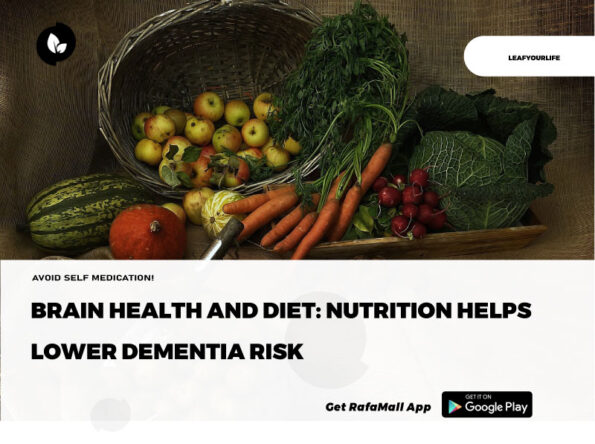
Dementia risk reduction and memory enhancement in older adults are at the forefront of recent findings by the Gerontological Society of America, highlighting the profound link between our diet and brain health.
Their latest report, “Insights & Implications in Gerontology: The Vital Role of Nutrition in Brain Health,” emphasizes how certain dietary choices can significantly impact cognitive wellbeing.
A nutritious diet: The keystone of cognition
The core message of the publication is both straightforward and powerful. It states that adopting a nutritious diet acts as a preventive measure against the onset of dementia as we age.
The report explains how important vitamins and minerals are for our diet and brain health. The experts describe how brain health can be improved by talking about food choices in a way that focuses on the individual’s overall well-being.
The MIND diet explained
One standout dietary recommendation from the publication is the Mediterranean-DASH Diet Intervention for Neurodegenerative Delay, or MIND diet.
This diet is celebrated for its association with enhanced cognitive function. It prioritizes the intake of vegetables (particularly green leafy ones), nuts, berries, beans, whole grains, fish, poultry, and extra virgin olive oil.
Meanwhile, the MIND diet limits the intake of red or processed meat, butter, regular cheese, pastries, sweets, and fried foods.
Remarkably, adherence to the MIND diet can boost an individual’s cognitive abilities to the equivalent of about 7.5 years younger than their actual age.
Personalizing nutrition
Dr. Kathryn Porter Starr from Duke University School of Medicine and Durham VA Medical Center, and one of the guiding faculty members behind this publication, shared her approach to initiating dialogue about nutrition. “Broaching the topic of diet and nutrition can be challenging,” she stated.
Dr. Porter’s method includes matching talks about diet with what the individual wants to achieve. These goals can be physical (gaining muscle strength); cognitive (improving memory); or functional (being able to travel or play with grandchildren).
Consequently, this approach makes discussions more meaningful and motivates healthier lifestyle changes.
Overcoming nutritional challenges in aging
Despite the ideal scenario where all nutrients are derived directly from food, the publication acknowledges the challenges that some older adults face in achieving this due to age-related physiological changes and diseases that affect nutrient absorption.
Dr. Starr expressed a common sentiment: “I would love for everybody to get all of their micronutrients from food.”
However, she recognizes the reality that most older adults find this challenging. Therefore, the recommendation often leans toward the consumption of fortified foods or dietary supplements to ensure an adequate nutritional intake.
Charting a path to cognitive vitality
The study offers valuable guidance on how nutritional choices can serve as a cornerstone for cognitive health in older age.
Through a combination of science-backed recommendations and a compassionate, goal-oriented approach to nutrition counseling, the research presents a clear path toward safeguarding our cognitive functions as we navigate the later stages of life.
Health benefits of the MIND diet
The MIND diet, blending elements of the Mediterranean and DASH diets, focuses on foods that positively impact brain health. This diet has garnered attention for its potential to notably lower the risk of Alzheimer’s disease and slow cognitive deterioration.
It emphasizes foods rich in antioxidants and anti-inflammatory properties, such as berries and leafy greens, which may protect against oxidative stress and inflammation linked to neurodegeneration.
Heart health
Additionally, the MIND diet promotes heart health through its encouragement of whole grains, fish, poultry, and olive oil – foods that are beneficial for cardiovascular wellness, which in turn supports brain health by ensuring a steady flow of nutrients and oxygen.
It also plays a role in weight management and diabetes prevention by prioritizing whole over processed foods and featuring a plant-based approach, addressing key risk factors for cognitive decline and dementia.
Long-term management
One of the appealing aspects of the MIND diet is its flexibility and sustainability, as it is not overly restrictive, making it more manageable for individuals to adhere to long-term.
There’s also emerging evidence suggesting that the diet’s emphasis on healthy fats and fresh produce might offer protection against Parkinson’s disease, although further research is needed in this area.
Beyond dietary choices, maintaining a healthy lifestyle that includes physical activity and avoiding smoking is crucial for maximizing the diet’s brain health benefits.
Source: earth.com











